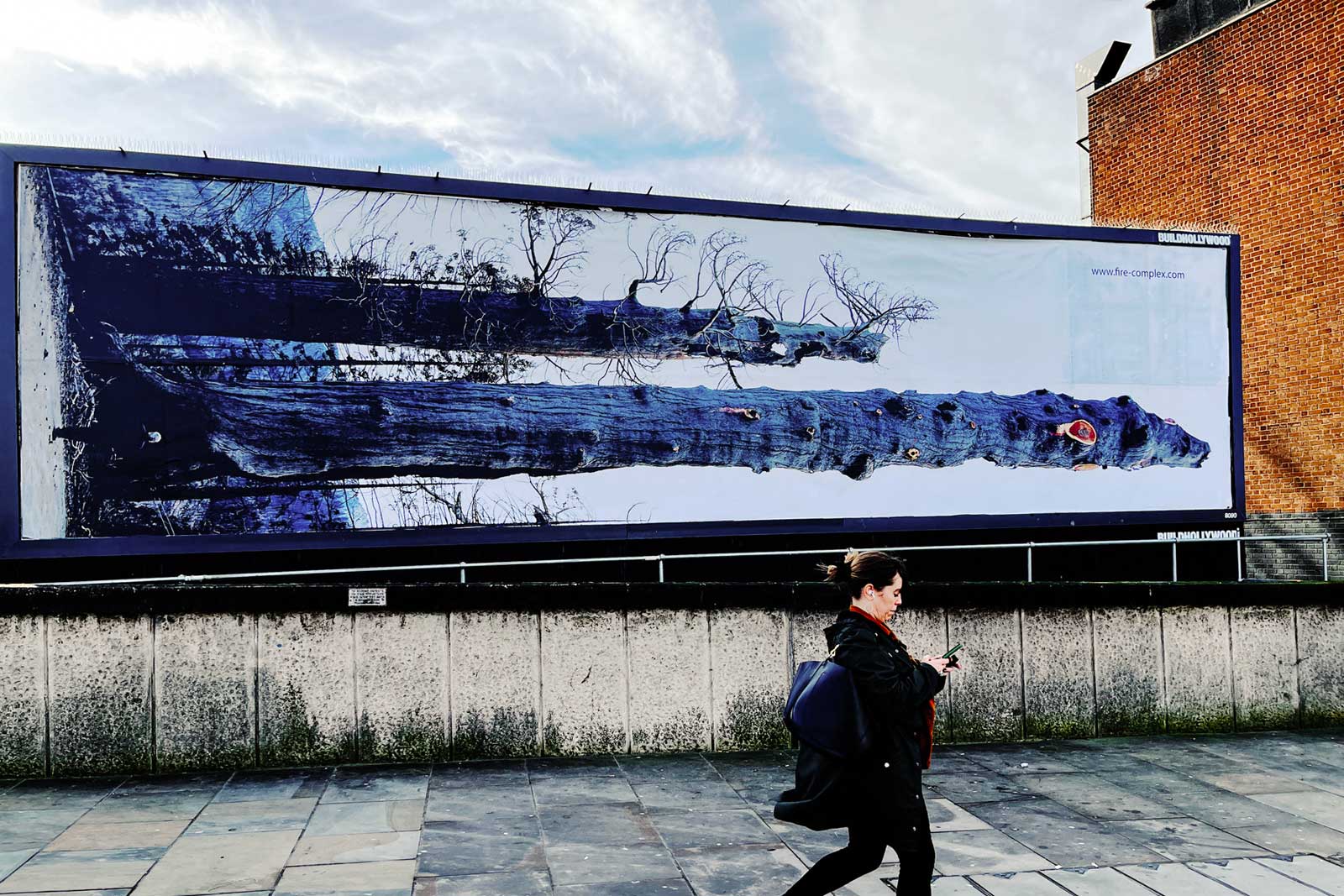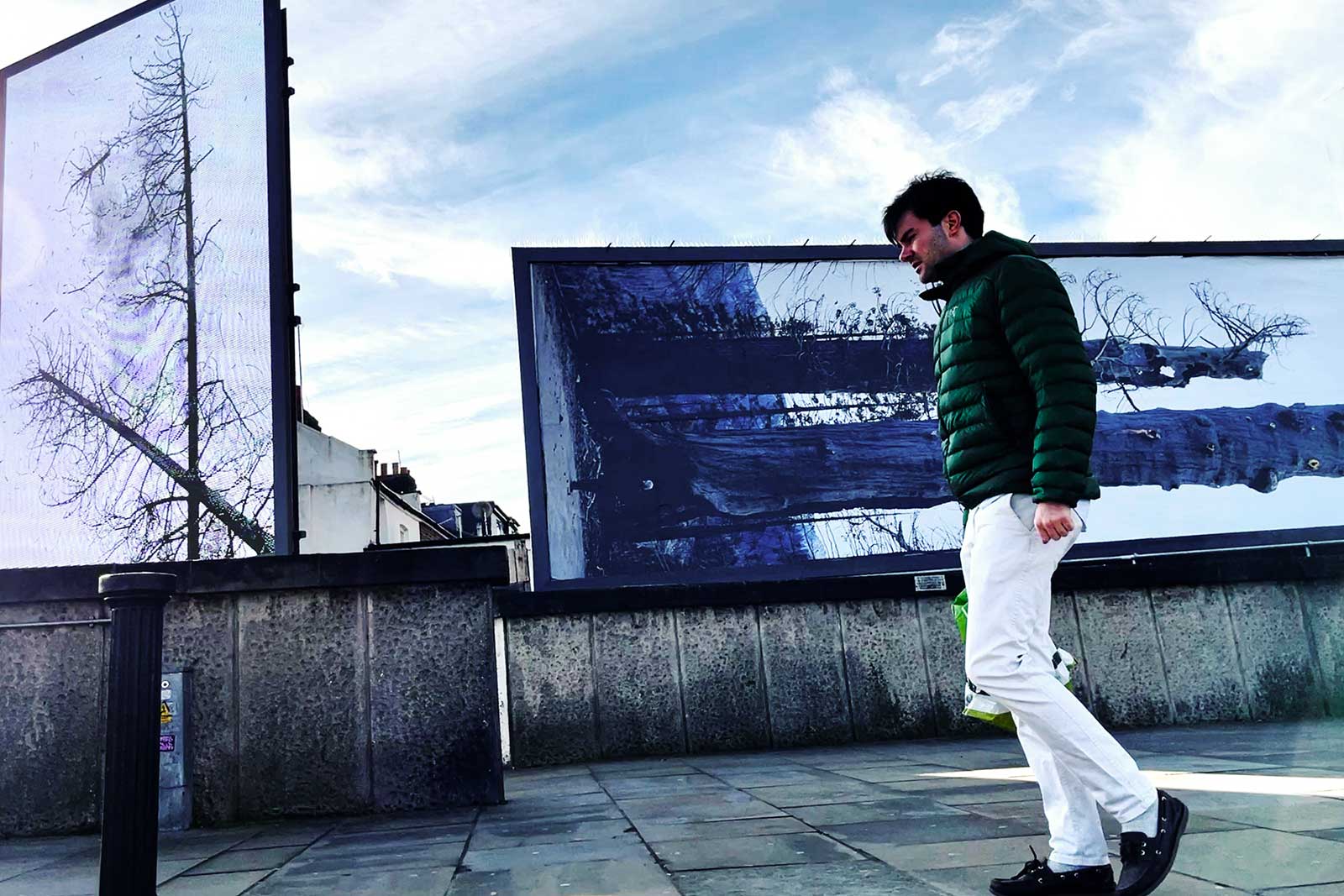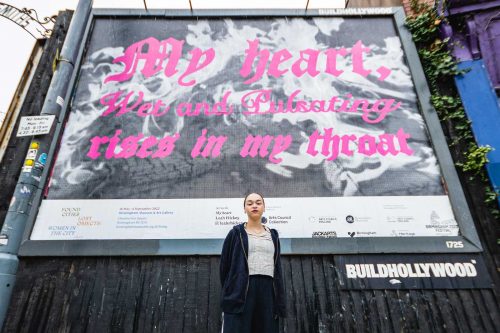Throughout the multifaceted Fire Complex there’s a simmering foreboding at the terrible waste and Anthropocene irresponsibility. But there’s also steadfast resolve to, first, attest truths without sentimentality. And second, point to and enact practical steps beyond the self-inflicted devastation.
Art curator and producer Zarina Rossheart got together with Uta Kögelsberger for a more in-depth discussion about the development, processes and hoped-for aims related to Cull and Fire Complex…
Your multidisciplinary practice encompasses photography, moving image, sculpture and sound. Why are you attracted to using these mediums and how do these choices open up a space for expressing and communicating your ideas to your audience?
Cull and the wider project Fire Complex it sits nestled in were a direct response to the aftermath of the 2020 Castle Fire. Because of the urgency of the situation in our forests, it was clear from the start that the work needed to refer to the actual causes and consequences of the wildfires as directly as possible without too much artifice. Thus, the choice of photography and video as a medium.
But Fire Complex could never only be about creating a set of compelling images about a terrible situation. It had to set about making a difference. In the video installation Cull, we witness the removal of the fire damaged trees that are coming crashing to the ground in an orchestrated choreography. Some trees are falling with such force that the ground beneath them shakes. Alongside this the paper billboards bring the scale of the disaster to the fore through the sheer size of the images. The medium of this work is not just photography and video, the medium is also its support, i.e. paper and digital billboards in the public realm. When I started working on Cull it became clear very quickly that it needed to be seen in the public realm. It was essential that this work reached wider audiences beyond the confines of the gallery walls. The issue of forest management and wildfire prevention is not something we can wait years to address.
A lot of your projects feel urgent, they question the status quo, bringing the audience’s attention to the current social and political crises, yet the way you approach presenting these issues feels very personal and almost poetic. How do you manage to create this tension in your work? And what message would you like the audience to take away from it?
Over the last ten years the sense of a wider political, social, and ecological crisis has come to a peak. Brexit, the Trump administration, Black Lives Matter, the clear and factual evidence that climate change is here, the lack of action of our governments in response to it despite the clear message that we need to act now, all in their own way play into that.
Against this background it would feel irresponsible to make work that does not in some way engage with our social and political reality. At the same time, it also seems important that I have a direct connection to the projects I am working on. I need to feel like I own their reality. So, the work always starts from the personal even if it ultimately reflects on global situations. In the case of Fire Complex that was tied to my love for the area and the loss of this amazing ecosystem that was destroyed. This amazing ecosystem was also our back yard. Maybe it is this personal involvement that allows others into the work, that brings a human scale back into the overwhelming size of the disaster and allows audiences in.
I think a part of the way in which the personal dimension manifests itself in the work is related to the fact that I am not shooting with a team of camera and sound people. It is me and my camera, and sometimes me running up and down steep slopes to service three cameras, while also recording sound and liaising with the team cutting the trees. I wonder if it’s this low-fi production that makes the work much feel so immediate and accessible. Though my work is always anchored in social and political engagements it is also always sensory and visceral. The reason this is so important is because most of us do not learn through the pure communication of facts. Experience is an essential aspect of understanding the world. And politics is personal. When congress decides to allow each individual USA state to decide on their own emissions, instead of empowering the environmental protection agency to regulate emissions, then this is a decision that will have personal repercussions on all of us.


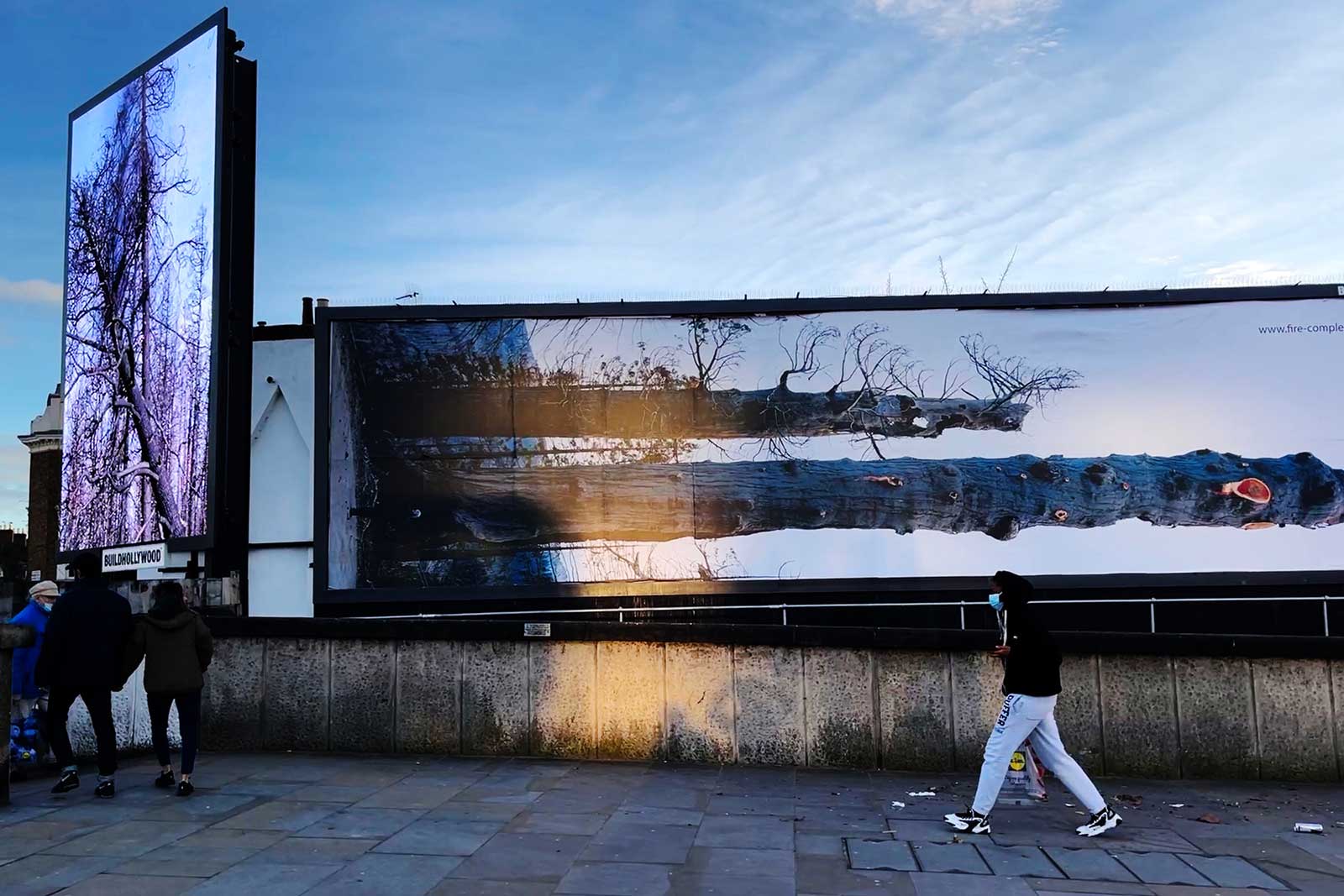
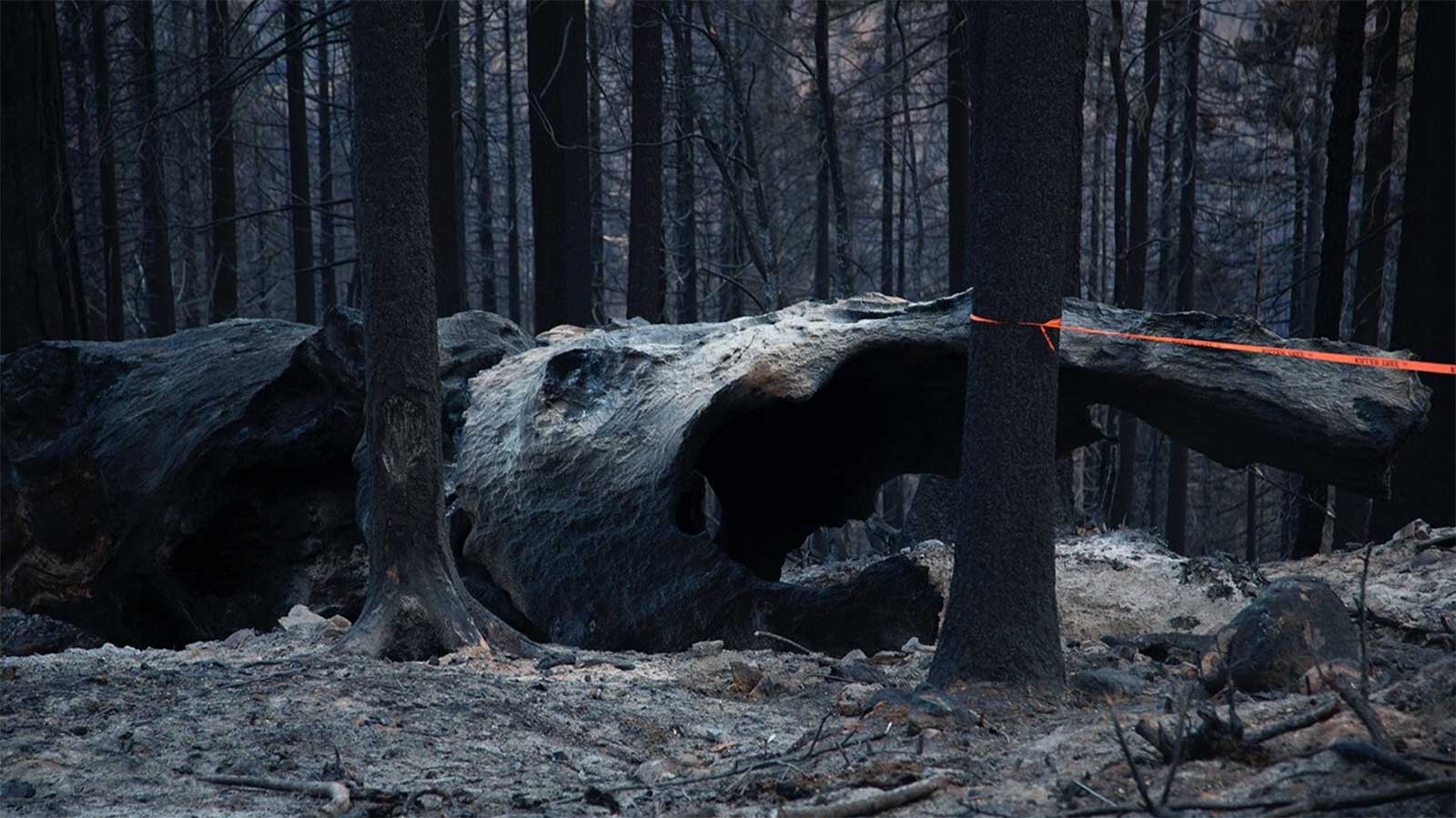
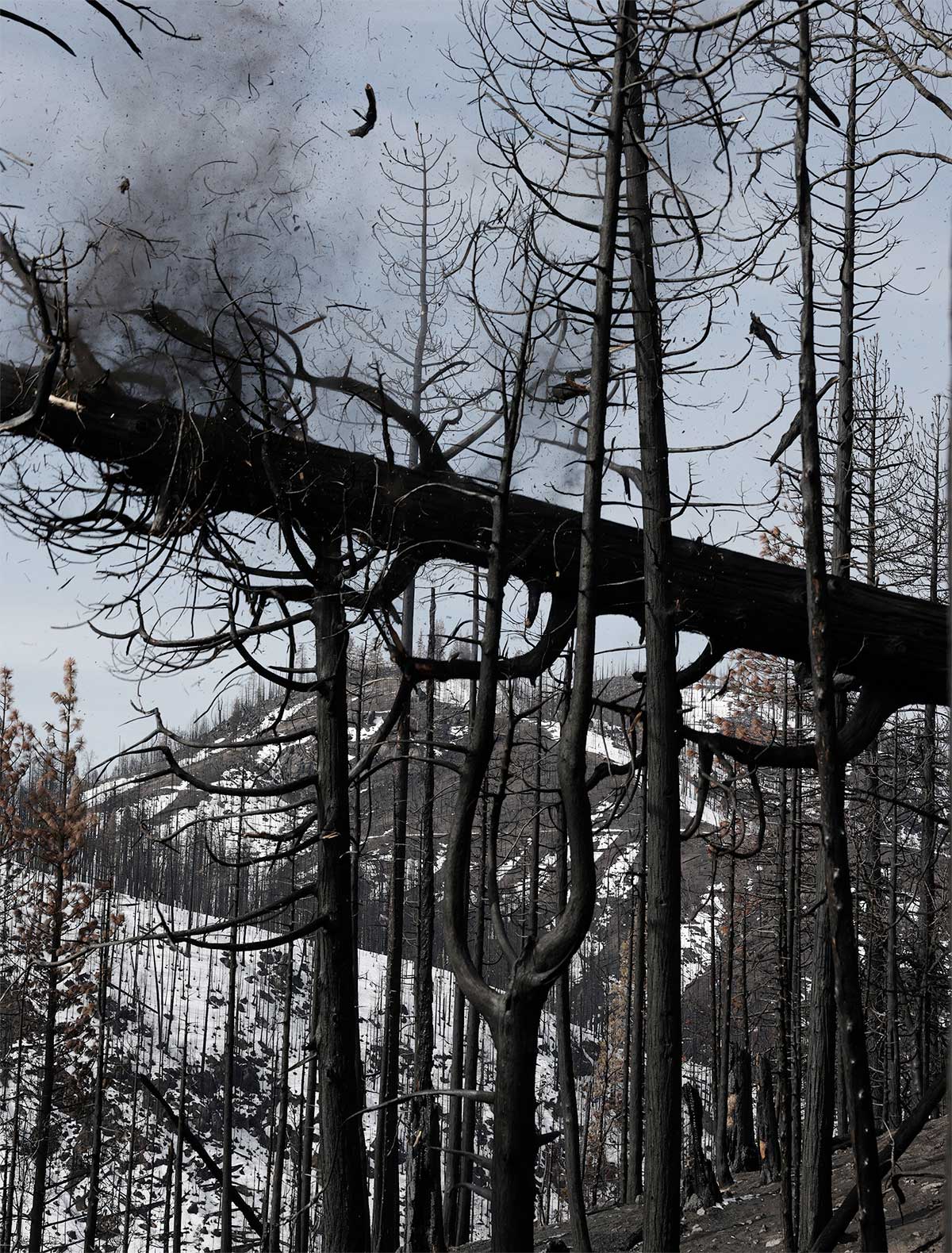
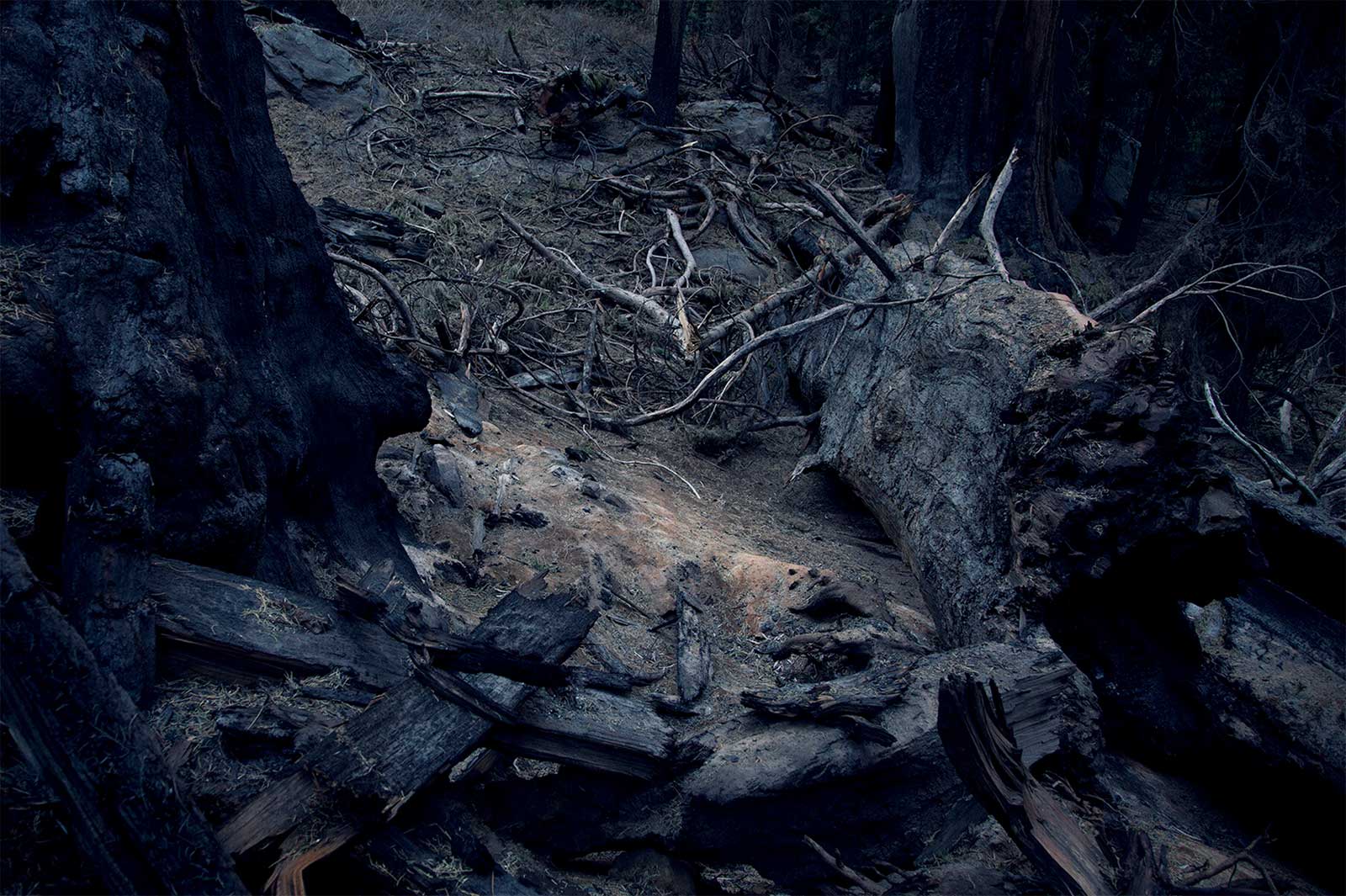
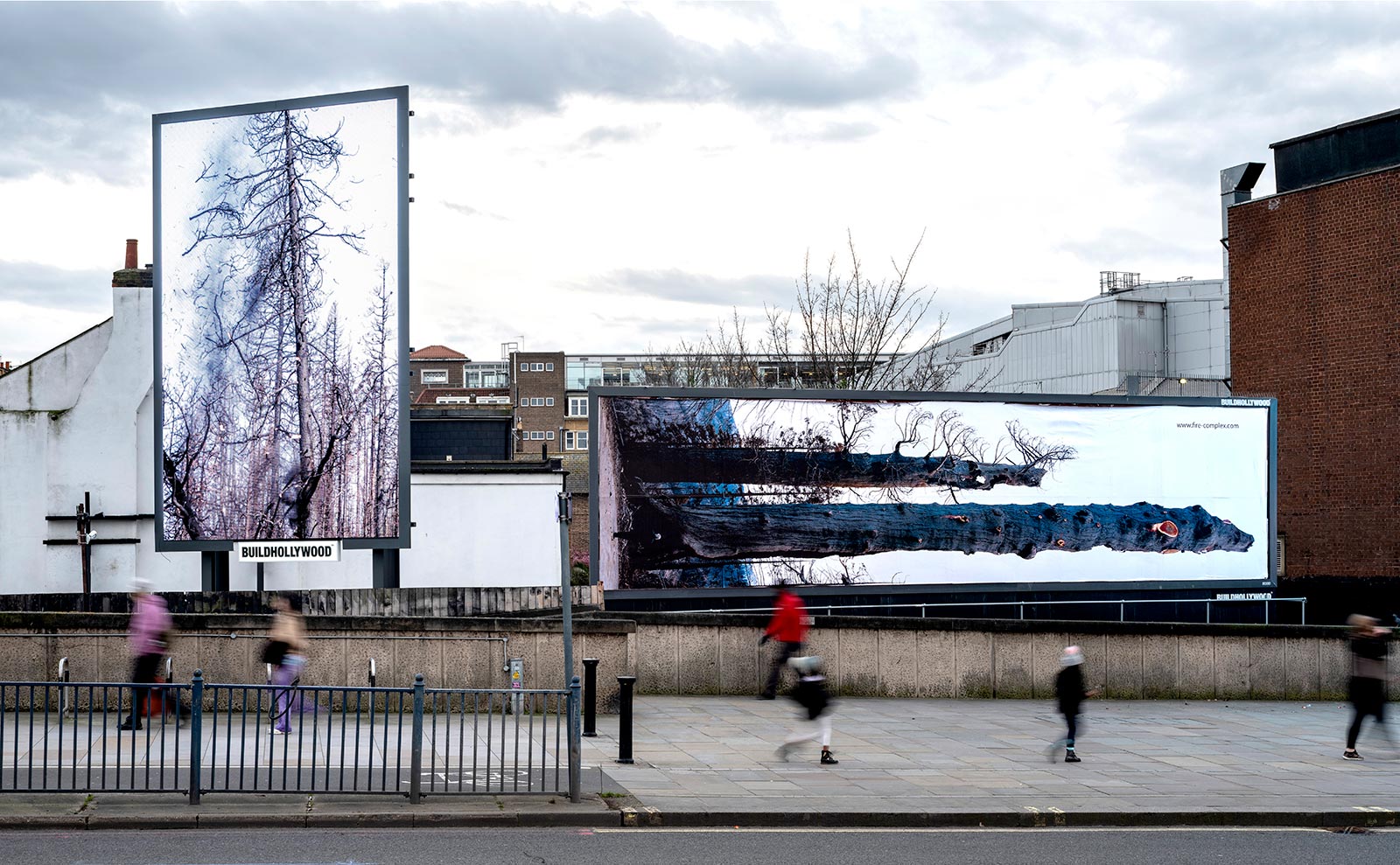 Fire Complex, Shepherd's Bush Roundabout (2021) - Uta Kögelsberger
Fire Complex, Shepherd's Bush Roundabout (2021) - Uta Kögelsberger
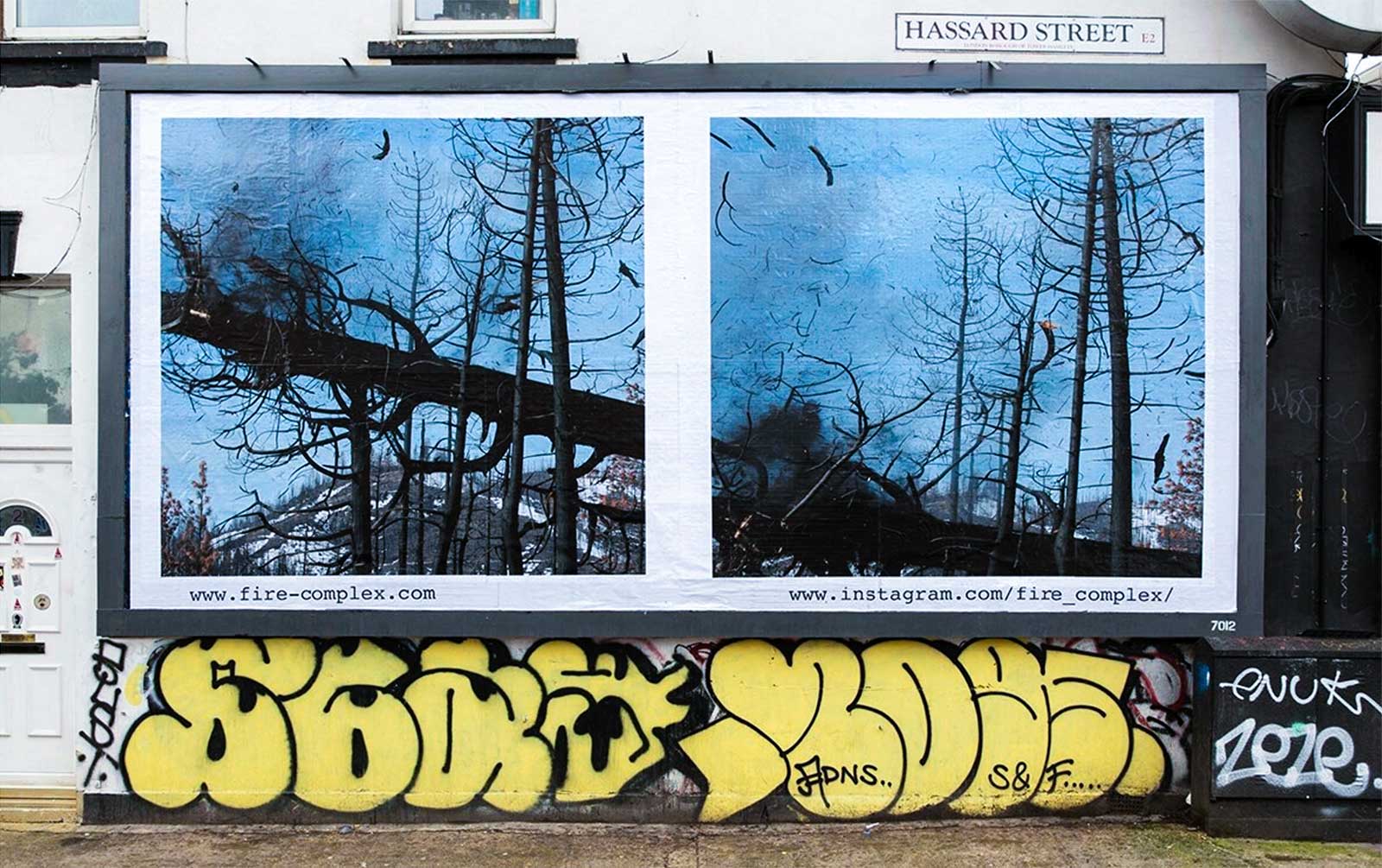 Fire Complex, Hackney Road (2021) - Uta Kögelsberger
Fire Complex, Hackney Road (2021) - Uta Kögelsberger
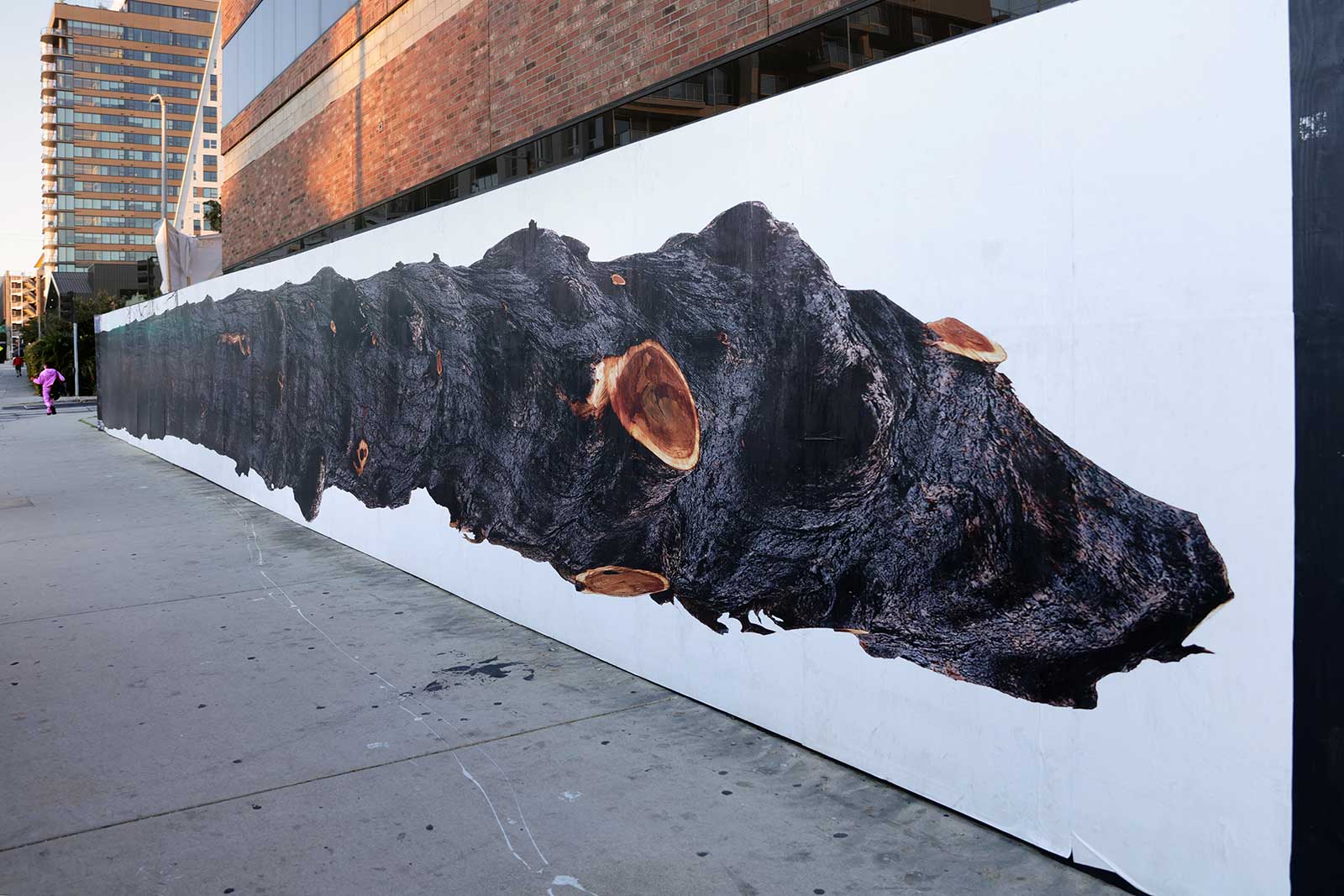 Fountain, Fountain Avenue and Cahuenga Boulevard, LA - Uta Kögelsberger
Fountain, Fountain Avenue and Cahuenga Boulevard, LA - Uta Kögelsberger
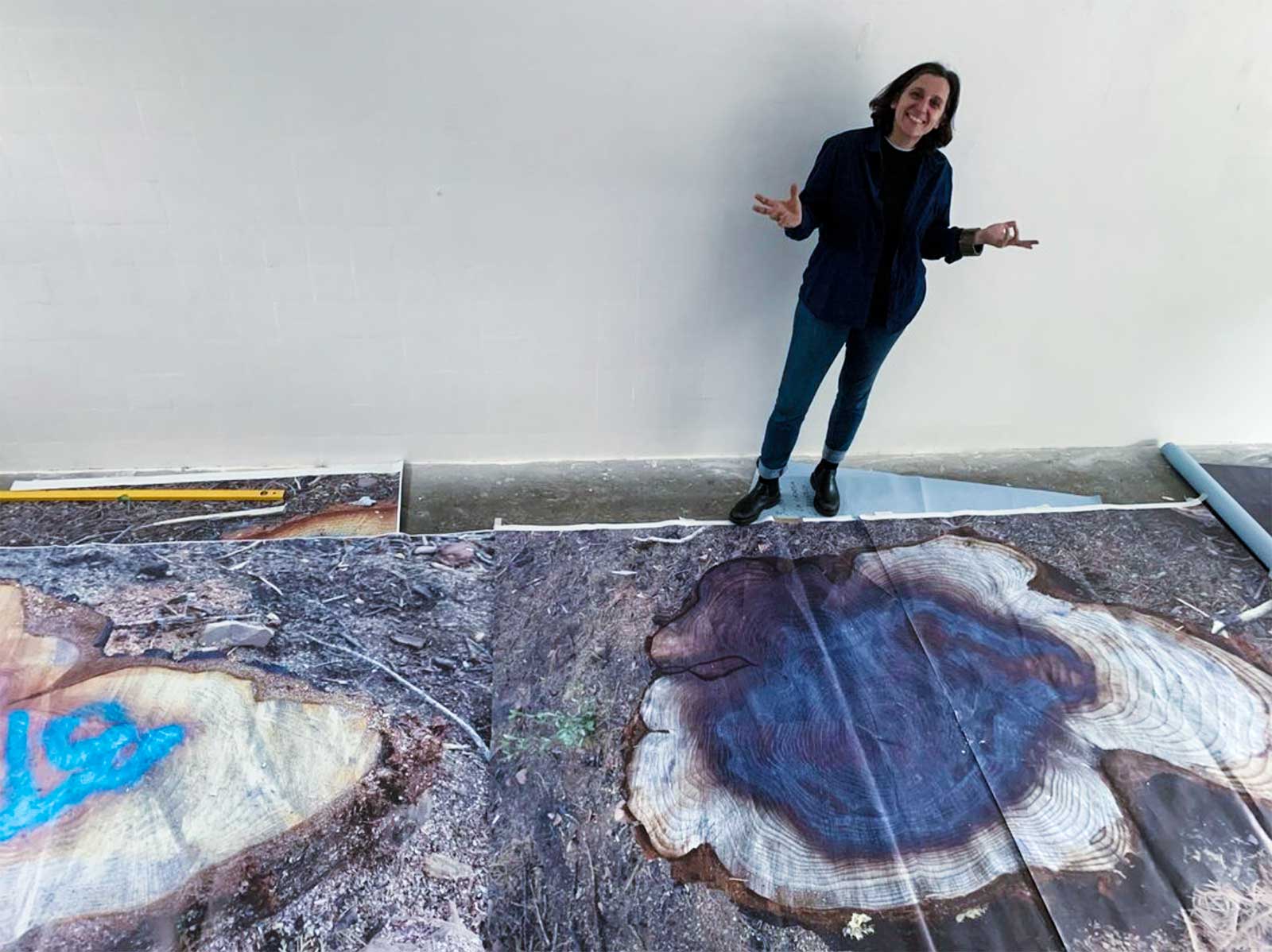 Uta Kögelsberger
Uta Kögelsberger
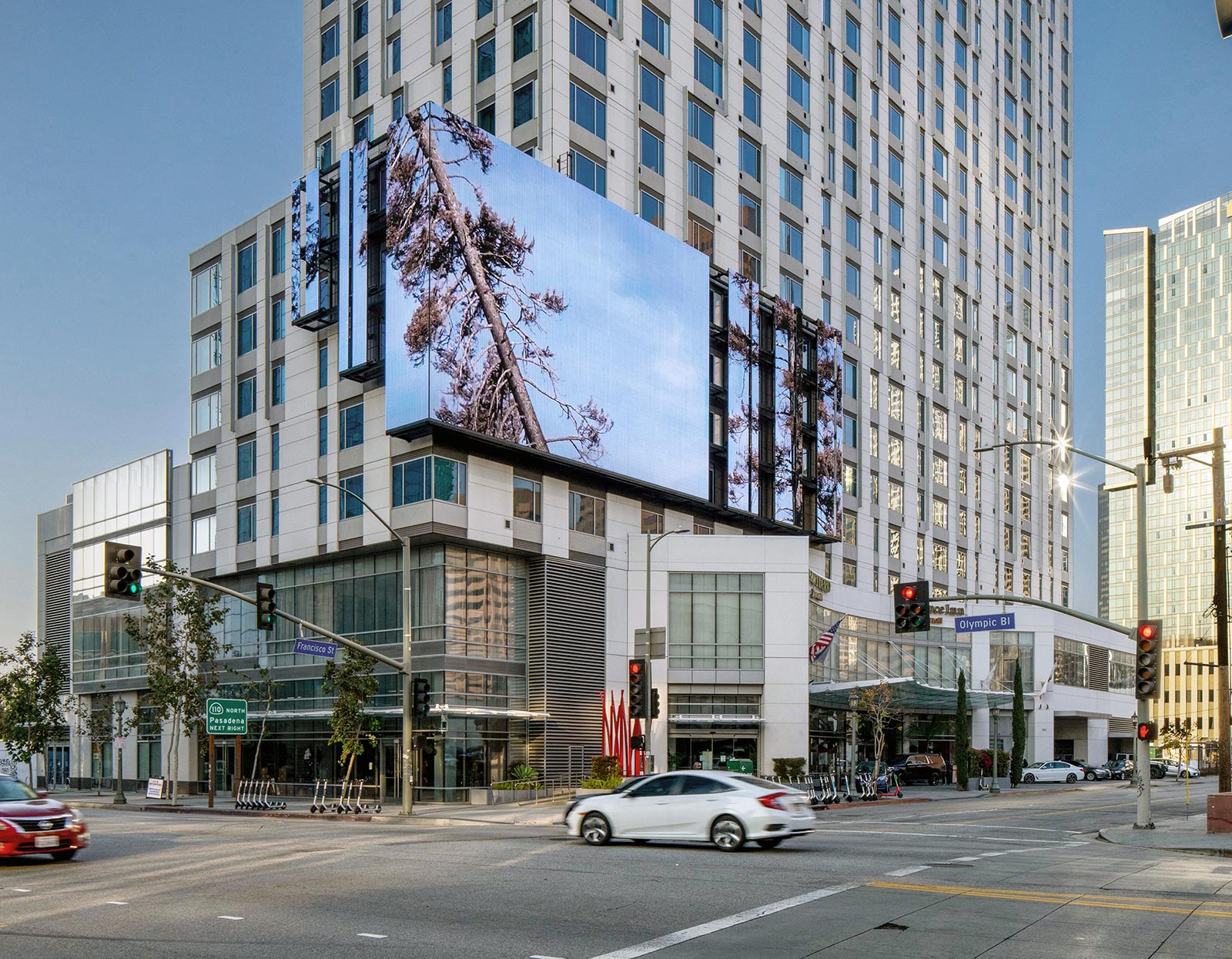 Cull - Installation, Los Angeles - Uta Kögelsberger
Cull - Installation, Los Angeles - Uta Kögelsberger
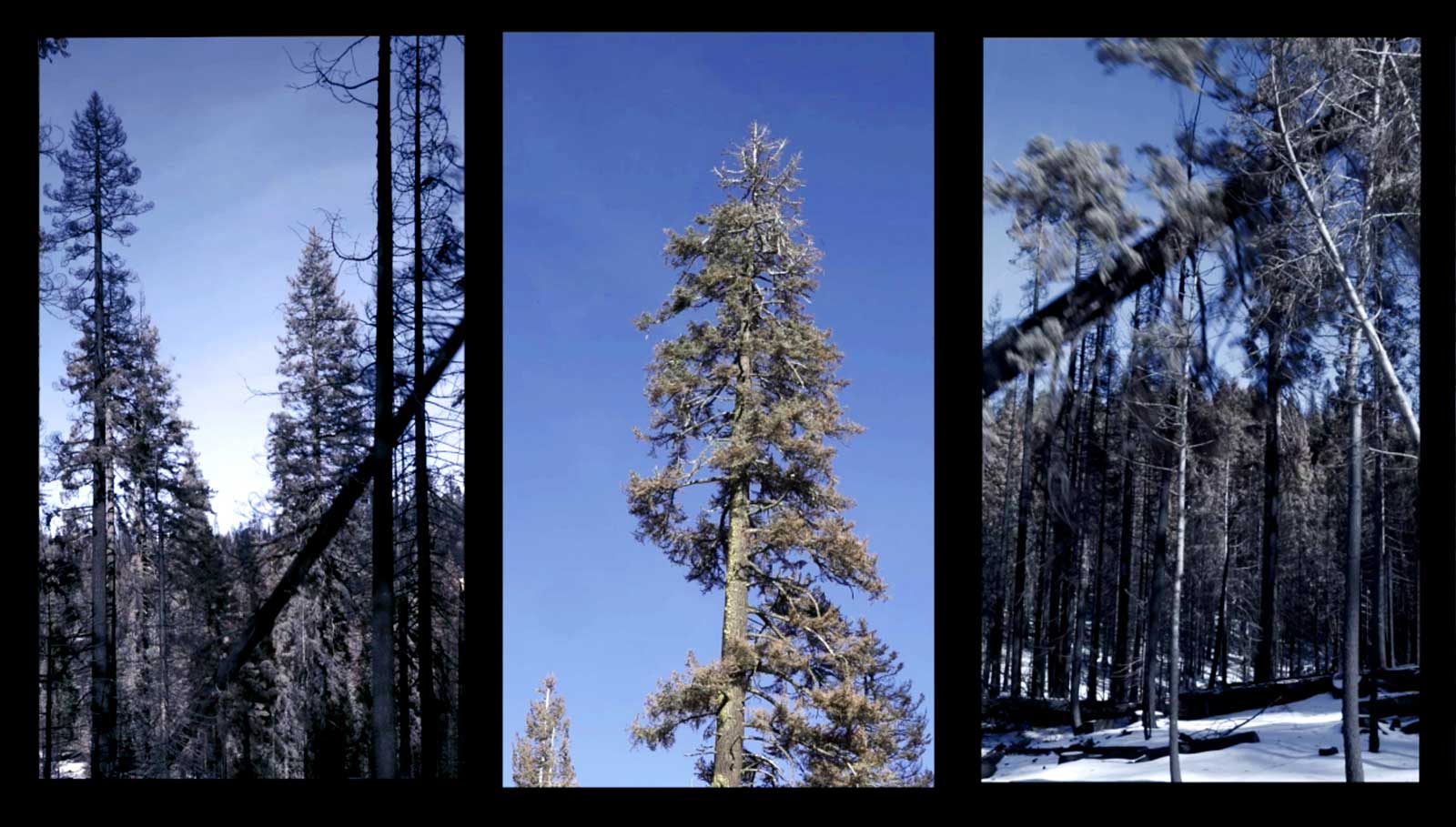 Cull (still) - Uta Kögelsberger
Cull (still) - Uta Kögelsberger
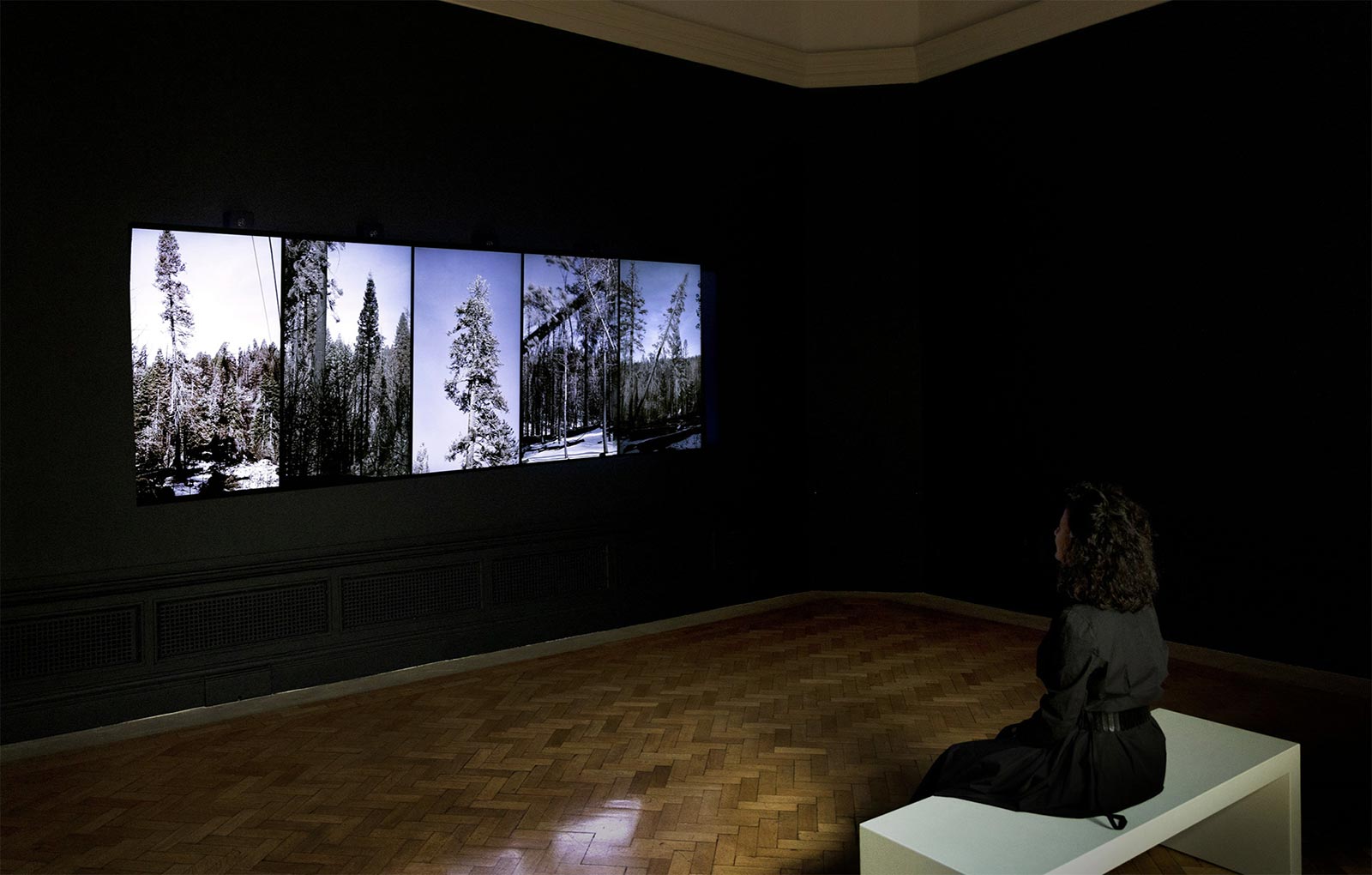 Cull - Royal Academy installation - Uta Kögelsberger
Cull - Royal Academy installation - Uta Kögelsberger
